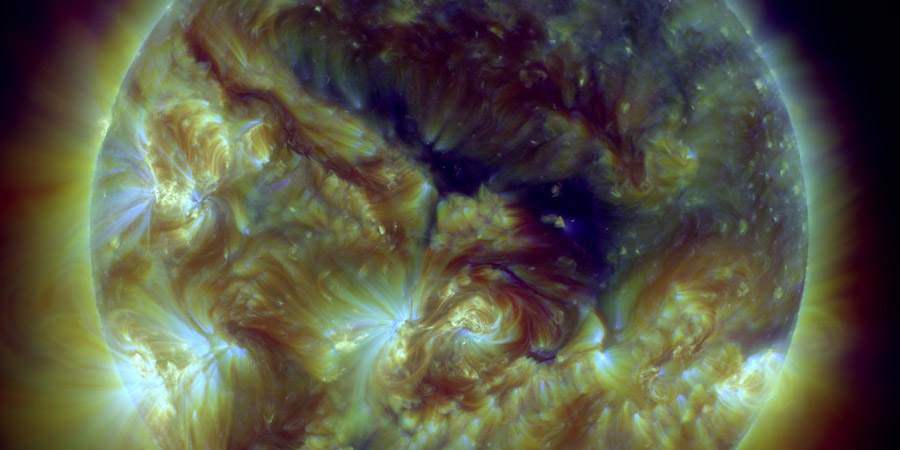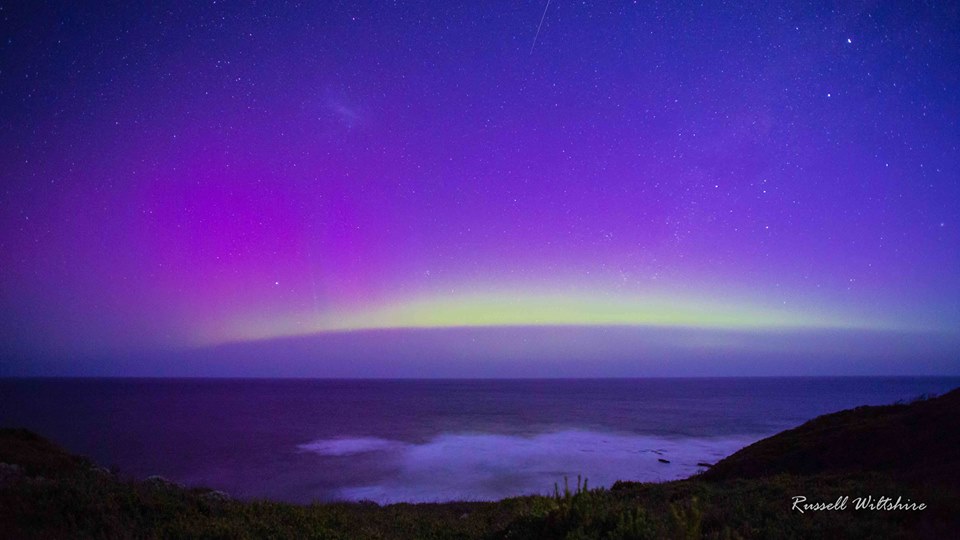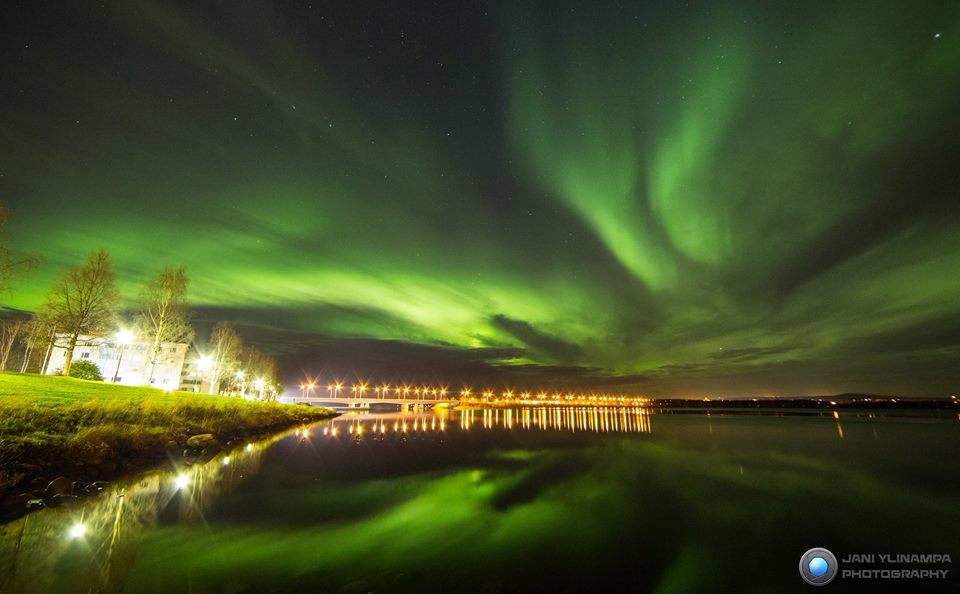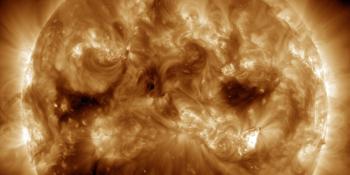Waiting for the next stream, Quiet Sun
Monday, 19 October 2015 17:25 UTC

A minor coronal hole faced Earth yesterday and solar wind flowing from it could arrive in about 48 hours from now. Active geomagnetic conditions (Kp4) could occur once the solar wind stream arrives.
Geomagnetic conditions are quiet right now but we did had one period where we reached the G1 minor geomagnetic storming threshold yesterday due to what was likely a minor coronal hole solar wind stream that carried a mostly southward Bz component of the IMF. Aurorae were seen from multiple high latitude and even upper middle latitude locations like:
Russell Wiltshire Photography - Point Addis near Anglesea, Australia:

Jani Ylinampa Photography - Rovaniemi, Finland:

Quiet Sun
What likely are the remains of sunspot region 2422 has rotated into view and it is now known as sunspot region 2437. While there were two M-class solar flares from this area on 17 October, we have to conclude that the spots which are visible right now pose no threat for further M-class activity.
All the other sunspot regions on the disk are also not complex enough for M-class activity. Beta-Gamma sunspot region 2436 and sunspot region 2434 are however likely candidates for C-class activity.
Thank you for reading this article! Did you have any trouble with the technical terms used in this article? Our help section is the place to be where you can find in-depth articles, a FAQ and a list with common abbreviations. Still puzzled? Just post on our forum where we will help you the best we can!
Latest news
Latest forum messages
Support SpaceWeatherLive.com!
A lot of people come to SpaceWeatherLive to follow the Sun's activity or if there is aurora to be seen, but with more traffic comes higher server costs. Consider a donation if you enjoy SpaceWeatherLive so we can keep the website online!

Space weather facts
| Last X-flare | 2025/03/28 | X1.1 |
| Last M-flare | 2025/04/01 | M2.4 |
| Last geomagnetic storm | 2025/03/27 | Kp5 (G1) |
| Spotless days | |
|---|---|
| Last spotless day | 2022/06/08 |
| Monthly mean Sunspot Number | |
|---|---|
| February 2025 | 154.6 +17.6 |
| Last 30 days | 128.1 -22.5 |


